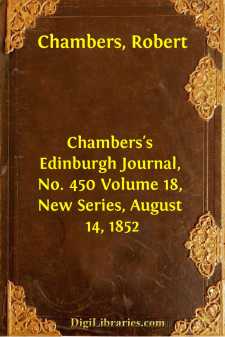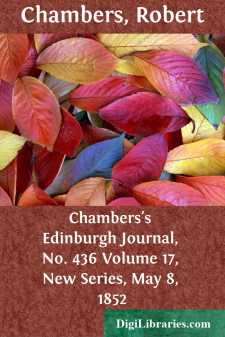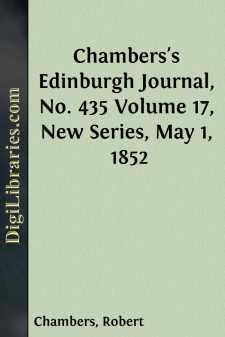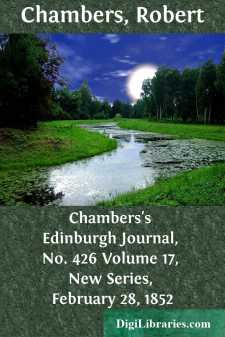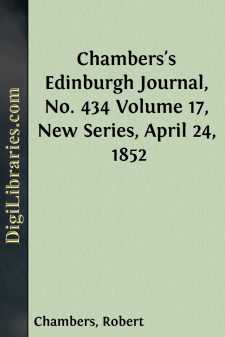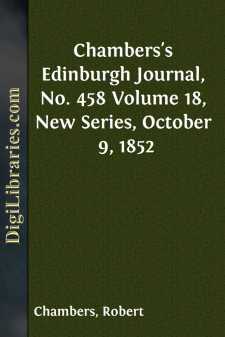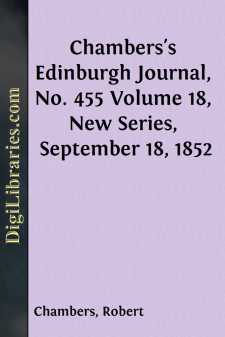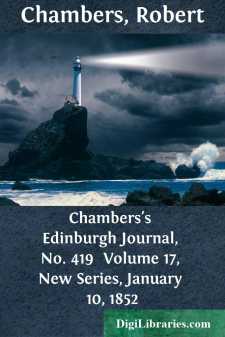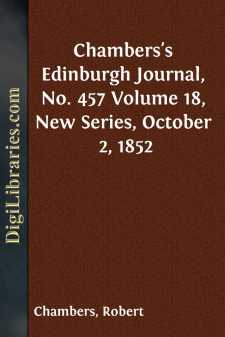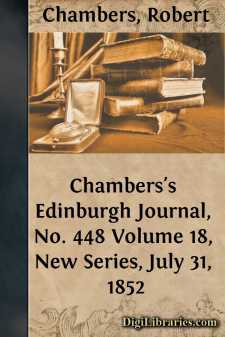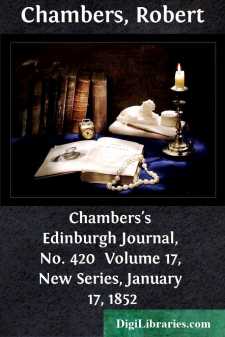Categories
- Antiques & Collectibles 13
- Architecture 36
- Art 48
- Bibles 22
- Biography & Autobiography 813
- Body, Mind & Spirit 142
- Business & Economics 28
- Children's Books 17
- Children's Fiction 14
- Computers 4
- Cooking 94
- Crafts & Hobbies 4
- Drama 346
- Education 46
- Family & Relationships 57
- Fiction 11829
- Games 19
- Gardening 17
- Health & Fitness 34
- History 1377
- House & Home 1
- Humor 147
- Juvenile Fiction 1873
- Juvenile Nonfiction 202
- Language Arts & Disciplines 88
- Law 16
- Literary Collections 686
- Literary Criticism 179
- Mathematics 13
- Medical 41
- Music 40
- Nature 179
- Non-Classifiable 1768
- Performing Arts 7
- Periodicals 1453
- Philosophy 64
- Photography 2
- Poetry 896
- Political Science 203
- Psychology 42
- Reference 154
- Religion 513
- Science 126
- Self-Help 84
- Social Science 81
- Sports & Recreation 34
- Study Aids 3
- Technology & Engineering 59
- Transportation 23
- Travel 463
- True Crime 29
Chambers's Edinburgh Journal, No. 450 Volume 18, New Series, August 14, 1852
by: Robert Chambers
Description:
Excerpt
HINTS ON THE USEFUL-KNOWLEDGE MOVEMENT.
The advocates of the diffusion of useful knowledge among the great body of the people, found one of their greatest difficulties to lie in an inability on the part of the people themselves to see what benefit they were to derive from the knowledge proposed to be imparted. This knowledge consisted of such a huge mass of facts of all kinds, that few could overcome a sense of hopelessness as attending every endeavour to acquire it. Take botany alone, it was said. You have a hundred thousand species of plants to become acquainted with—to learn their names, and to what genera and orders they belong, besides everything like a knowledge of their habitats, their properties, and their physiology. Seeing that this is but one of the sciences, there might well be a pause before admitting that the moral and intellectual regeneration of our people was to be brought about by the useful-knowledge movement.
There was here, however, a mistake on both hands, and one which we are only now beginning to appreciate. It was not observed at first, that there is a great distinction to be drawn between the relations of science to its cultivators or investigators, and those which it bears to the community at large. It is most important that a scientific zoologist like Mr Waterhouse, or a profound physiologist like Professor Owen, should determine and describe every species with the minutest care, even to the slightest peculiarities in the markings of a shell or the arrangements of a joint, because that exactness of description is necessary in the foundations of the science. But it is not necessary that every member of the public should follow the man of science into all these minutiæ. It is not required of him, that he should have the names of even the seventy families of plants at his finger-ends, though that is not beyond the reach of most people. Some summation of the facts, some adroit generalisation, if such be attainable, is enough for him. The man of science is, as it were, a workman employed in rearing up a structure for the man of the world to look at or live in. The latter has no more necessary concern with the processes of investigation and compilation, than a gentleman has with the making of the mortar and hewing of the stones used in a house which he has ordered to be built for his residence.
Were the facts of science thus generalised, it is surprising how comprehensive a knowledge of the whole system of the universe every person might have. Only generalise enough, and no one need to be ignorant. Just in proportion as a man has little time to bestow on learning, condense the more what you wish to impart, and the result, where there is any fair degree of preparedness, will be all the better. In the very last degree of exigency, explain that nature is a system of fixed method and order, standing in a beneficial relation to us, but requiring a harmonious conformity on our part, in order that good may be realised and evil avoided, and you have taken your pupil by one flight to the very summit of practical wisdom....


